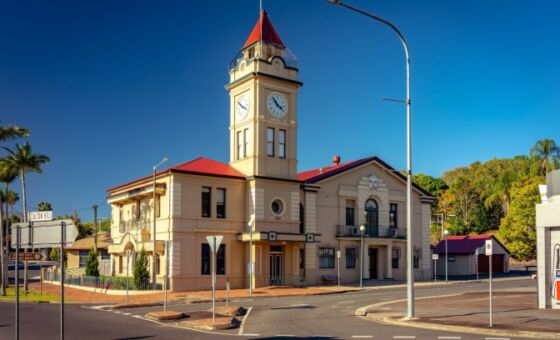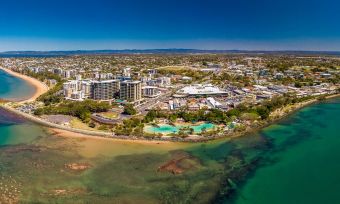Mortgage Brokers Brisbane
A mortgage broker can help homebuyers in Brisbane find a home loan to finance their property purchase. If you’re looking to buy or refinance a home loan, we explain what a Brisbane mortgage broker may offer and how to find one that suits your needs.
About Brisbane mortgage brokers
 12 June, 2025
12 June, 2025
Nick Whiting, Content Producer, Canstar || Fact Checked
The once-quiet city of Brisbane has seen a property boom in the past several years. Internal migration from southern states has seen property prices in the Queensland capital grow. In fact, as at 31 May 2025, Brisbane’s home value index has risen 7.1% for the year to date, only second to Adelaide and Perth, according to Corelogic.
Whether you’re in the market for your first home, or are an existing homeowner looking to upgrade or even downsize, then getting a good deal on a home loan might well be on your mind at this time. If you’re looking to buy a property in Brisbane, then working with a mortgage broker may be one way to help you find a suitable option for a home loan.
How does a mortgage broker work?
A mortgage broker is someone who acts as an intermediary between banks and lenders, connecting people who wish to apply for a home loan with financial institutions who might be able to offer them a good deal. A good mortgage broker will get to know you and your particular needs and financial circumstances, and then use this information to connect you with one or more home loan lenders from the ‘panel’ they work with.
How can you find a good broker in your area of Brisbane?
If you are looking for a broker who knows your local area, one place to start would be word of mouth. If you have friends and family who have bought in Brisbane, they may be able to recommend a good broker who is aware of the needs of the local community, and the particulars of the real estate market. Likewise, asking friends and family for recommendations may be a good way to find out about any negative experiences that they have had with brokers.
The Federal Government’s Moneysmart website also suggests that those who are in the market for a mortgage broker can search for one through a professional association. The Finance Brokers Association of Australia Limited (FBAA) and the Mortgage & Finance Association of Australia (MFAA) both have websites with searchable databases of licensed brokers, so you can find one in your local area.
Advertisement
Questions to ask a broker
There are a number of key questions you might consider asking to find out if a broker is the right person for the job. You may ask a broker:
Do they hold a licence? It’s important that anyone doing business as a mortgage broker in Australia is licensed to give credit advice. Licensed brokers are bound by statutory duties, and foremost among these is a duty to act in the best interests of their clients when recommending loan products. If you’re wondering whether a broker is licensed, you can enquire with a professional body such as the FBAA or MFAA.
How do their fees and commissions work? Mortgage brokers in Australia typically do not receive upfront payment from clients. Instead, they’re paid in the form of commissions and other perks from banks and lenders. You may wish to ask your broker how they’re paid, and if certain lenders offer more attractive remuneration than others.
How many lenders do they deal with? Mortgage brokers generally work with a ‘panel’ of different banks and lenders, offering a variety of different home loan options. There is no hard and fast rule as to how large this panel should be—indeed, a broker may have a small number of quality options for you or a large number of unsatisfactory ones. Even so, you may feel that the more lenders a broker deals with, the greater the chances that they will find you a suitable home loan deal.
Do they favour a particular lender? If a mortgage broker sends the greater proportion of their business to one particular lender, you may wish to know why and if they are rewarded in some way for doing so. Even though brokers are required to act in your best interests and offer you a suitable home loan option, you may be concerned that there’s an even better deal out there that you’re missing out on if your broker favours one lender over another.
What is their ownership structure? When assessing a mortgage broker, it may be worthwhile to ask if a major bank or lender has an ownership stake in their business. You may be concerned that the broker will try and direct your business to this particular institution, causing you to miss out on an even better home loan deal if one is available elsewhere. Likewise, it may be important to you to know that your broker is independent.
How does a mortgage broker get paid?
Mortgage brokers in Australia aren’t generally paid by their clients, meaning that they receive their remuneration in one of three ways: upfront commissions, trail commissions and/or soft dollar benefits. The first two are in the form of direct payments that come from lenders in exchange for referring clients, while the third consists of perks and benefits. Here’s a rundown of how the three are different.
What are upfront commissions?
An upfront commission is a commission that is paid to a broker by a bank or lender upon successfully signing up a customer for a mortgage. There is no set amount for upfront commissions, and they can vary depending on the financial institution. It may even be the case that a bank or lender pays a certain commission rate if a broker directs a certain amount of business their way. If a bank pays a 0.5% commission and your mortgage broker signs you up to them with an $800,000 home loan, then your broker would make a commission of $4,000.
What are trail commissions?
Trail commissions are smaller than upfront commissions, but are paid out periodically. In some cases, a bank or lender will pay a trail commission to a broker for each year that a borrower remains on a home loan. Trail commissions are considered ‘controversial’, and the 2017 Banking Royal Commission recommended scrapping them altogether, but this has not yet come into effect. You may therefore wish to ask your broker if they receive these kinds of commissions.
What are ‘soft dollar’ benefits?
‘Soft dollar’ benefits are more like perks, or non-monetary ways for banks and lenders to reward mortgage brokers for sending them business. One example of such a benefit might be a bank that offers favourable commission rates to brokers for bringing them customers, or a higher commission rate if they hit a certain threshold of referrals. Another example might be perks such as hotel stays at conferences, or overseas trips.
About the author
 Nick is a Content Producer at Canstar, providing assistance to Canstar’s Editorial Finance Team in its mission to empower consumers to take control of their finances. He has written hundreds of articles for Canstar across all key finance topics. Coming from a screenwriting background, Nick completed a Bachelor of Film, Television and New Media Production from Queensland University of Technology. Nick has also completed RG 146 (Tier 1), making him compliant to provide general advice for general insurance products like car, home, travel and health insurance, as well as giving him knowledge of investment options such as shares, derivatives, futures, managed investments, currencies and commodities. Nick’s role at Canstar allows him to combine his love of the written word with his interest in finance, having learned the art of share trading from his late grandfather. Nick strives to deliver clear and straightforward content that helps the everyday consumer navigating the world of finance. Nick is also working on a TV series in his spare time. You can connect with Nick on LinkedIn.
Nick is a Content Producer at Canstar, providing assistance to Canstar’s Editorial Finance Team in its mission to empower consumers to take control of their finances. He has written hundreds of articles for Canstar across all key finance topics. Coming from a screenwriting background, Nick completed a Bachelor of Film, Television and New Media Production from Queensland University of Technology. Nick has also completed RG 146 (Tier 1), making him compliant to provide general advice for general insurance products like car, home, travel and health insurance, as well as giving him knowledge of investment options such as shares, derivatives, futures, managed investments, currencies and commodities. Nick’s role at Canstar allows him to combine his love of the written word with his interest in finance, having learned the art of share trading from his late grandfather. Nick strives to deliver clear and straightforward content that helps the everyday consumer navigating the world of finance. Nick is also working on a TV series in his spare time. You can connect with Nick on LinkedIn.






